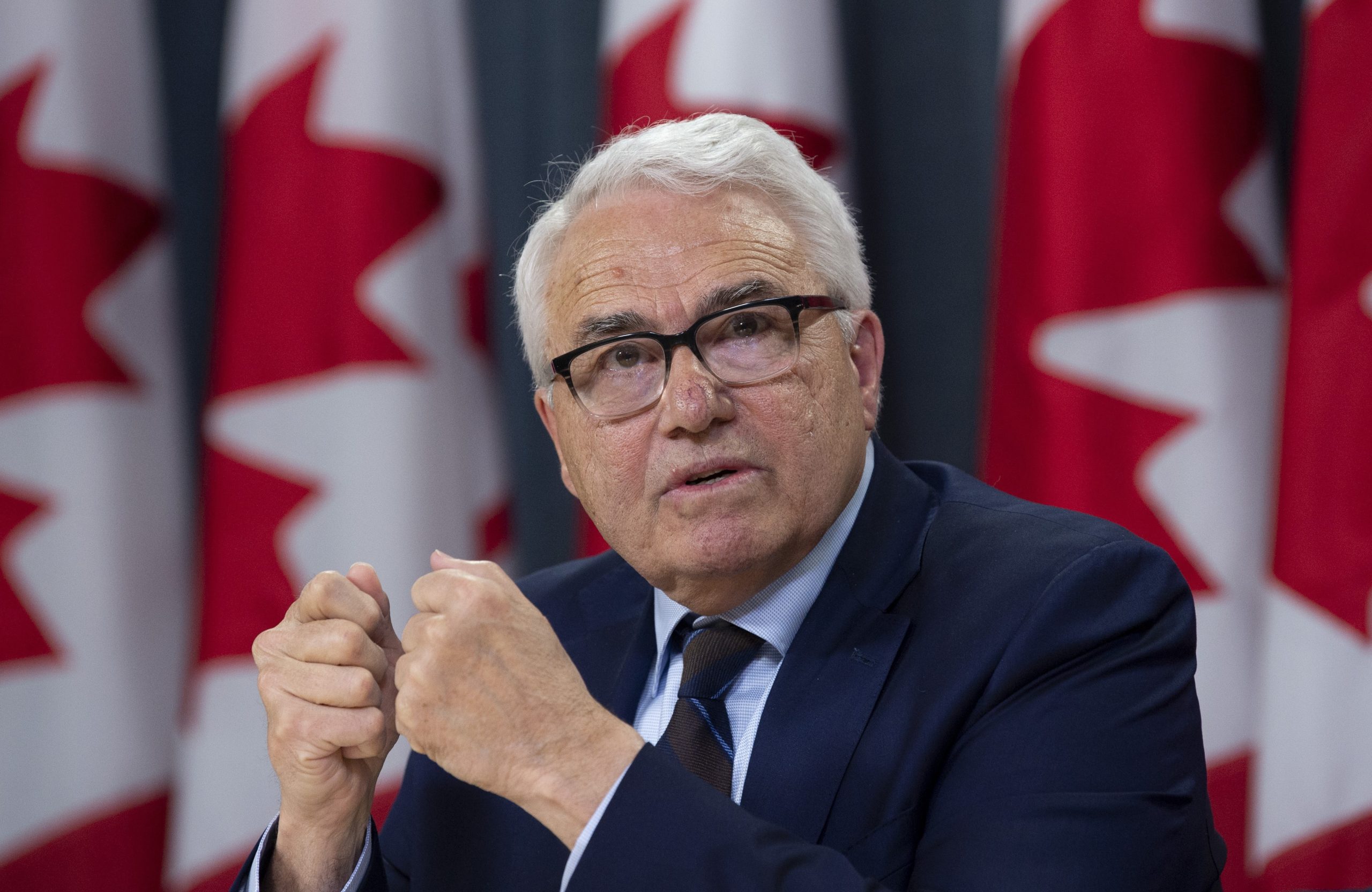Canada News
Governor General, Air Canada CEO trigger ‘tidal wave’ of complaints to languages czar

Official Languages Commissioner Raymond Théberge responds to a question during a news conference in Ottawa, Thursday, May 9, 2019. THE CANADIAN PRESS/Adrian Wyld
OTTAWA — Canada’s official languages commissioner said Tuesday his office received a “tidal wave” of complaints last year, triggered by the appointment of a governor general who isn’t fluent in French and an English-only speech delivered by Air Canada’s CEO.
The office received 5,409 complaints during the 2021-22 period, compared to a number that fluctuated between 415 and 1,870 in the nine preceding years. Almost 75 per cent of complaints last year involved the Governor General and the Air Canada CEO, according to a report tabled Tuesday by commissioner Raymond Théberge.
Théberge told reporters it is an “error” to name people who can’t speak both official languages to positions of authority. “If we make exceptions,” he said, “the message that it gives is that there’s a language more important than the other.”
“The message,” he said, “comes from above; the example comes from above.”
Théberge’s office received 1,346 complaints following the July appointment of Gov. Gen. Mary Simon — the first Indigenous person named to the role — due to her poor grasp of the French language. Simon, meanwhile, is fluent in English and Inuktitut.
His office also received 2,680 complaints after Michael Rousseau, the CEO of Air Canada — which is subject to the Official Languages Act — gave a speech in November during which he barely spoke French. Rousseau triggered further outcry when he told reporters after his speech he did not need to learn French to get by in Montreal. He later apologized and has since started taking French lessons.
In his report, the commissioner recommended that a parliamentary committee analyze whether knowledge of French and English should be a prerequisite for people being considered for high-ranking posts in the public sector and for posts that require nomination by government officials.
The nomination criteria for the governor general should be included in that study, Théberge said, adding that bilingualism is “extremely important” at all levels of government.
“Linguistic duality,” he said, “is a value that all Canadians share, and we need to do whatever we can to make it a real priority in Canada.”
This report by The Canadian Press was first published on June 7, 2022.
—
This story was produced with the financial assistance of the Meta and Canadian Press News Fellowship.
Michel Saba, The Canadian Press





















